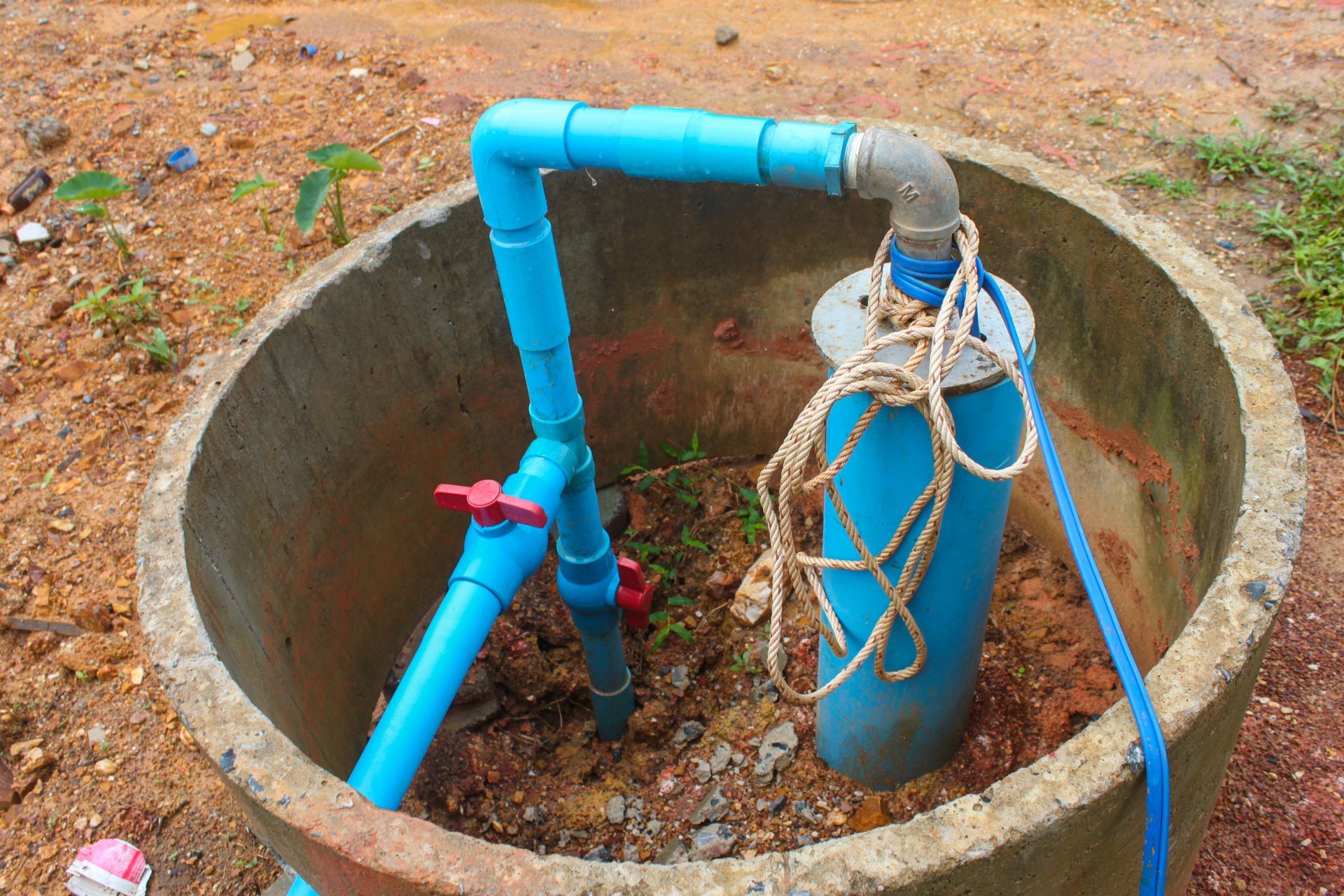Irrigation Well: Save Money On Your Water Bill

Using an irrigation well can be an excellent way for some homeowners to save money on their water bills. But is it good for everyone? Is it better than city water or even rainwater?
Table of Contents
What is Well Water Irrigation?
Well water irrigation is when you use water from the ground to water your lawn or garden. A well is a hole that is dug deep in the ground which allows you to access groundwater. An irrigation well is one of the most effective irrigation systems because irrigation wells save you money on water.
Where Does it Come From?
Well water comes from the ground. The water in the ground can be fresh or saline; it all depends on what surrounds the soil. The water itself comes from underground aquifers. Aquifers are just bodies of rock that water can move through. These aquifers will dictate the quality of water for the well.
You'll need to call an expert to look into if an irrigation well is right for you. Also, you'll need to contact your local water authority to ensure you can drill a well. They can guide you through the drilling process. You may also need an irrigation pump to get the water from the ground.
Advantages
The main advantages of well-water irrigation are:
- Save money on water
- Save money on electricity
- Help the environment
Save Money On Water
After the initial investment to drill the well, using well water is essentially free. That is, it is free to use the water. Of course, there are other expenses that can come with well water irrigation related to maintenance but they should not compare to a regular water bill year after year.
Other than the initial drilling cost, you should end up saving money overall. Previously, it was about $1000 - $2000 to drill a well, but with inflation, we'd estimate it could be up to $3000 in some areas.
Saving Money on Electricity
That's right. With well water, you can save money on electricity. That's because it takes less money to pump water from the ground than it does to transport it from a local municipal water system.
Saving The Environment
This one might seem obvious, but using a well can help the environment. You are saving water by using water from local aquifers rather than your municipal water supplies. Not only that, but well water doesn't need extensive chemical treatment like city water. You avoid chlorine and other harsh chemicals commonly used to disinfect your water.
Disadvantages
Well water irrigation does have some drawbacks. Even though you can save some money on your bills, you might also face some of these problems:
- Water contamination
- Water hardening
- Inconsistent flow rates
- Susceptible to drought
- Blockages
Water contamination
Unfortunately, well water is susceptible to agricultural or industrial runoff contamination. This runoff leaches into the ground and infects your water supply. Therefore, well water needs to be regularly checked for pH and other minerals to ensure its safe use.
Water hardening
Like contamination, well water can also have high levels of iron or other minerals which harden the water. This water can stain your clothing, concrete and anything else it might come in contact with. If you try to soften the water for personal needs while also using it for plants or your lawn, you risk adding salt to the water which can damage your garden. It's a fine balance that you need to keep an eye on.
Inconsistent flow rates
Unlike tap water, well water irrigation can have inconsistent flow rates. Certain drip irrigation systems need a specific amount of pressure in order to run properly. You may need to adjust your irrigation system frequently or buy a new one entirely to deal with well water flow rates changing all the time.
Drought
Every water supply is susceptible to drought but well water even more so. If you heavily depend on well irrigation for all your water, then you may be at risk during a drought. It's best to ask a local professional to estimate how much water you can use to ensure you never have an issue.
Blockages
Wells are susceptible to three different kinds of blockages: physical, chemical, and biological.
Physical
Salt or sand can accumulate at the bottom of the well inside the well screen which will reduce the amount of water that flows into the well. These are caused from corrosion, contamination, and other installation-related problems.
Chemical
Certain chemicals can precipitate out into your wells, causing a blockage. The most common location is where water enters the well at the well screen. Just something else you may come across if you have well irrigation.
Biological
Where there is water, there is life! Same with a water well. The most common bacteria in a well are:
- Iron-reducing
- Sulfate-reducing
- Slime-producing
The type of bacteria in your well is going to relate to the type of bacteria you have. Keep in mind it's possible to have chemical and biological contamination at the same time.
So long as you keep up with your regular
maintenance and do an annual inspection of the well, you shouldn't be concerned with these things. Even the most defunct well can be
rehabbed and put back into proper use. Well irrigation is still a great an effective way to get water to your lawn, garden or home.
Sweet New Earth's Final Say on Well Irrigation
Irrigation wells are a great way to supply water to your home that doesn't involve municipal water supplies. It's just like any other irrigation system with its own water pressure and supply. You can even hook it up to a garden hose to water your plants by hand if you want.
At the end of the day, choosing to get a well irrigation system will depend on your area. Some people have to use well water even if they don't want too. Do your research and make the best choice for your home.
FAQs
Before to go...
Now that you know all about irrigation wells, you know how to get water to your garden or lawn. Be sure to read our guide on the best drip irrigation systems so you water your garden as efficiently as possible...
The Best Drip Irrigation Systems
Related Articles:

Carl Anderson
Carl Anderson is an avid outdoorsman with a keen interest in writing about and reviewing tools. He has over 20 years of writing experience and the only time he isn't feverishly typing away at his computer is when he's outside in nature working on his projects. You can learn more about him here.
Join our community!
Join to receive guides, insights, and the latest gardening deals!
